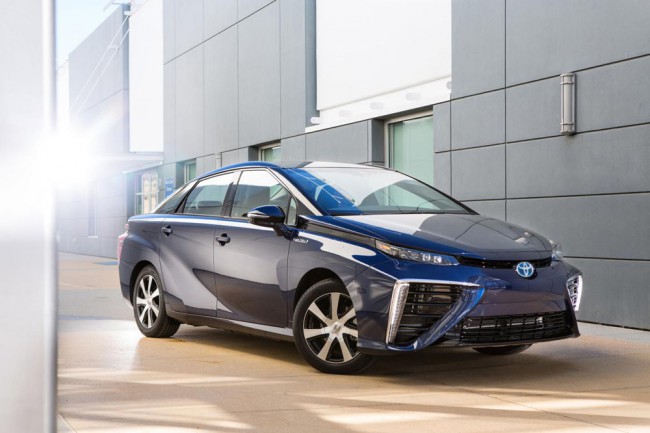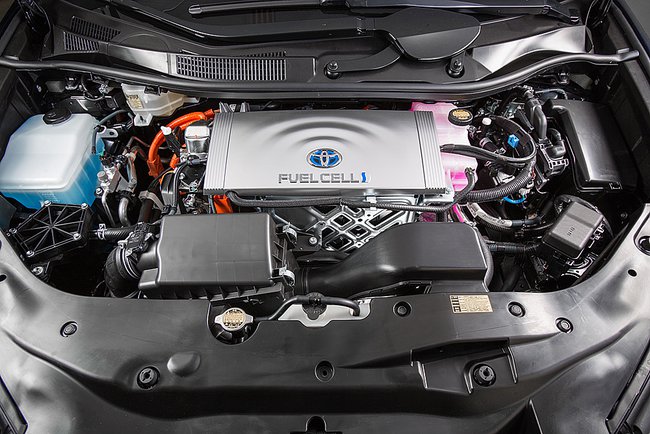Toyota began selling a car with a hydrogen engine

Today , sales of the Toyota Mirai ("the future" of Japan), the world's first production car with a hydrogen engine, began in Japan. The price of the novelty is 7,236,000 yen (approximately $ 61,100), while the Japanese government subsidizes the purchase of 2.02 million yen (just over $ 17,000). According to the company's plans, sales were to begin in spring 2015, however, since the number of pre-orders exceeded expectations, it was decided to postpone the date to an early date.
Mirai is a four-door sedan, the engine of which is an electric motor with a capacity of 151 liters. s., receiving energy from the converter, the starting material of which is hydrogen stored in two carbon fiber tanks under a pressure of 70 MPa. The oxygen required for a chemical reaction comes directly from the car's radiator during its movement. One refueling is enough for a run of 480 km, and the filling itself with 5 kilograms (170 liters) of hydrogen lasts about 3 minutes. The maximum speed of the Mirai is 111 miles per hour (about 180 km / h), and it takes 9 seconds to accelerate to 100 km / h.

')
Under the hood at Mirai
In Europe, the car will be officially presented at the Geneva Motor Show, and in America, sales will begin at the end of next year at a price of $ 57,500 (which is comparable to the brainchild of Ilona Mask - Tesla electric cars) only in California and only in the amount of 200 copies - currently hydrogen filling There are no stations in the United States, and Toyota, together with Air Liquide, plans to build 12 of them at the beginning of sales - the price of one station is $ 7.2 million. As expected, the final price for cars, taking into account all discounts and government subsidies, can pay $ 45,000.

Inside Mirai
In addition to its intended purpose, a car's propulsion system can also serve as a kind of home power station for the house: engineers argue that with the help of the Power Take Off System they have developed, an average Japanese house can be supplied with electricity generated for 5 days. It is interesting to note that the thought of this unusual use of the car arose because of the significant risks of accidents in Japan, when due to the tsunami, entire cities are left without electricity.

Regardless of whether there are reasons to worry about Ilona Mask, TASS, referring to the former Saudi Minister Ahmed Zaki Yamani, notes that “the era of oil is coming to an end”:
As a result of the spread of alternative sources, the demand for oil will decline. In the field of electricity generation, it is already being replaced by atomic and wind installations. Oil is still needed for transportation, but demand is also falling there due to the growing spread of hybrid and electric cars. The oil era will finally end if it is possible to practically introduce hydrogen fuel and produce it cheaply. "
says the expert.
Source: https://habr.com/ru/post/364413/
All Articles